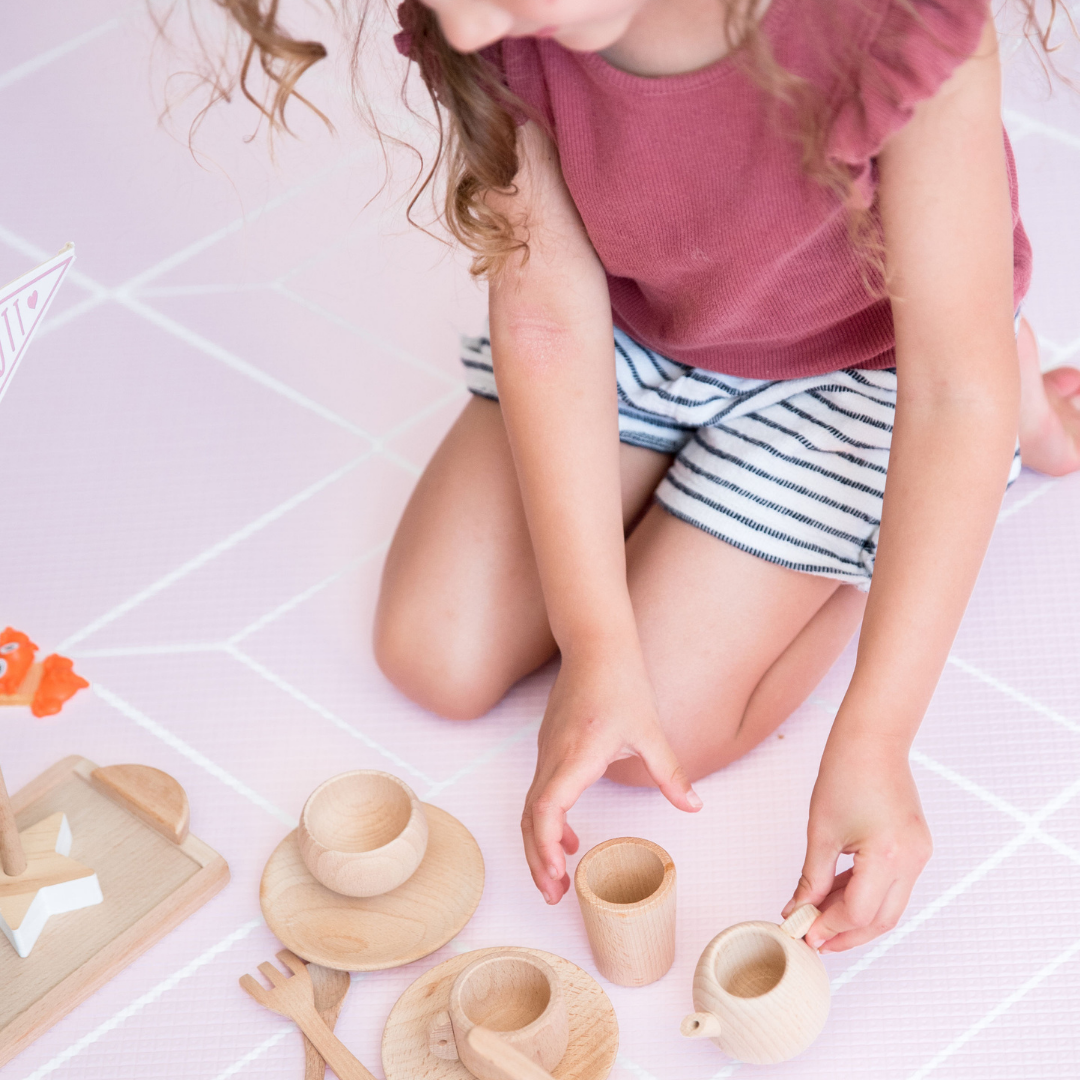
Pretend play - What is it? How do I do it? Why is it important?
"Here Mum, I made you a coffee?" PJ announced proudly as he shoved a bucket full of sand in my face. The pretend play is strong at the moment in that one, and clearly I drink waaaay too much coffee. But it got me thinking about what pretend play is and why I should encourage it... as I pretend to sip my coffee while slowly pouring it back into the sandpit.

Why Is Pretend Play Important?
For some kids it comes naturally, their make believe skills are intuitive, while for others they need some encouragement. The good news (or bad news, depending on your ability to drink phony tea, or sit at mini table and be taught by your little one) is that pretend play is extremely important for children.
The growth of a child's mental, emotional, and cognitive skills is focused on their imaginative and creative play. Children learn to socially connect, relate, and align personal feelings with the emotions of others through creative, open-ended play with both friends and family.
When a parent and child participate in safe, creative play together, there are several benefits. Early pretend play increases a child's attention span and focus as they immerse themselves in the game. Pretend or imaginative play can also improve a child's emotional intelligence, ability to negotiate social interactions and language development. Finally pretend play gives children an opportunity to explore and replicate interactions they have with others around them in a safe, fictional environment.
What is pretend play?
Pretend play is known by several different names. These names include imaginative play, artistic play, make-believe play, and fantasy play.

Simply put, it's role-playing. It is acting out different roles and creating story lines. It is the expression of positive and negative emotions, the discovery of options, and the experience of the outcomes of various decisions in a stable, regulated setting.
Examples to get you started
Have you ever seen your kid pick up a stone and imagine it's a speeding car or jump a Lego around the table pretending it's a robot or ballerina? Imaginative play can also include things like: dressing up as superheroes and pretending to be mummies and daddies. Or it could be pretending to go shopping, dressing up, pretending to fly to the moon, tea parties, pretending to drive trucks in the sandpit, and pretending to play with dolls etc. Or in the case of my children it is creating a cafe from the sandpit and feeding each other or me coffees, dinners and cakes.

How to encourage pretend play?
Children begin to play pretend between the ages of 14 and 18 months. Fortunately, they often do this on their own and don't need anything to get started. At this stage, parents should promote pretend play by keeping a variety of fun things on hand to facilitate imagination and ingenuity, such as cardboard boxes, blocks, dolls, figurines or sandpits etc. You can prompt this imaginative play by reading books (such as Bruno's Box), telling stories or having conversations to get them started. Then watch their little imaginations run wild.

As your little ones get older, allow them to create and lead their own imaginative play. Open ended toys, dress up items and everyday household items hold the key. Items like pots, pans and utensils can provide inspiration for play time. Therefore, there may be some chaos and clutter during the game as your child takes on the role. At the end of the day that is all part of their fun. And really, they were probably going to make the mess anyway.
Finally, don't forget children observe what we do and pick up skills from our nonverbal signals. Let's support their development by drinking that pretend coffee and joining in the fun!
